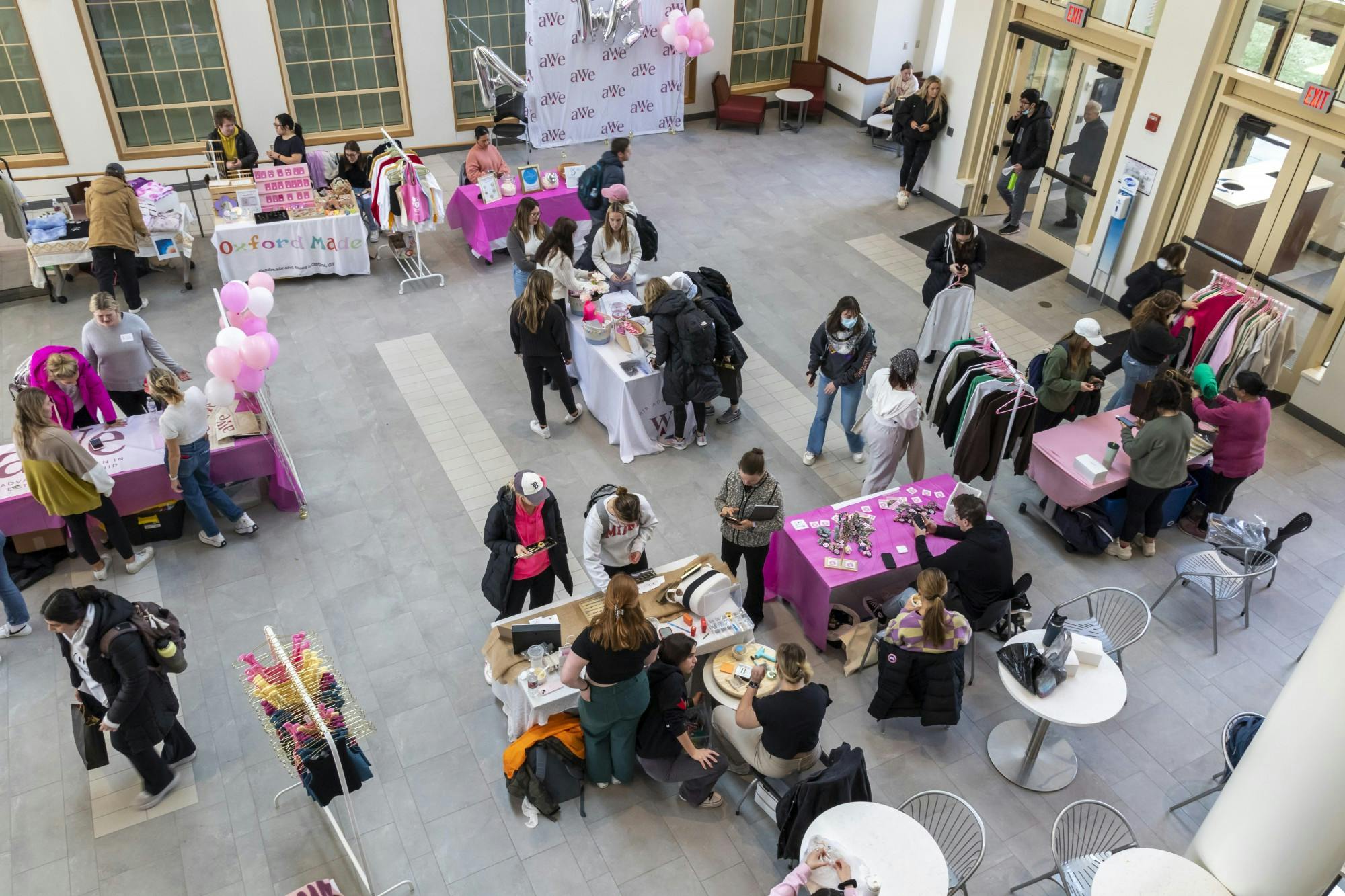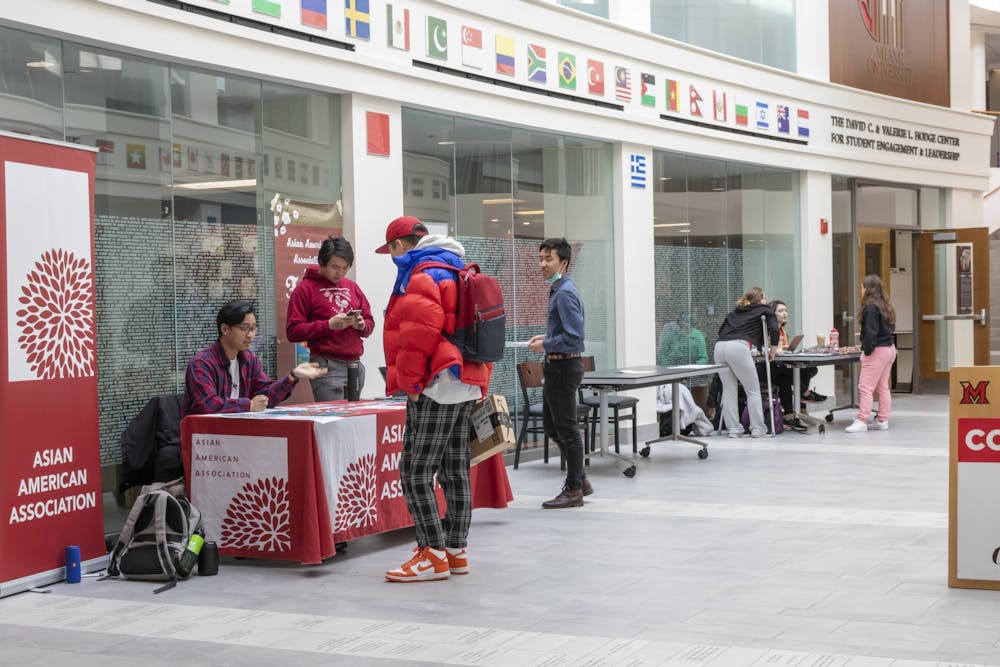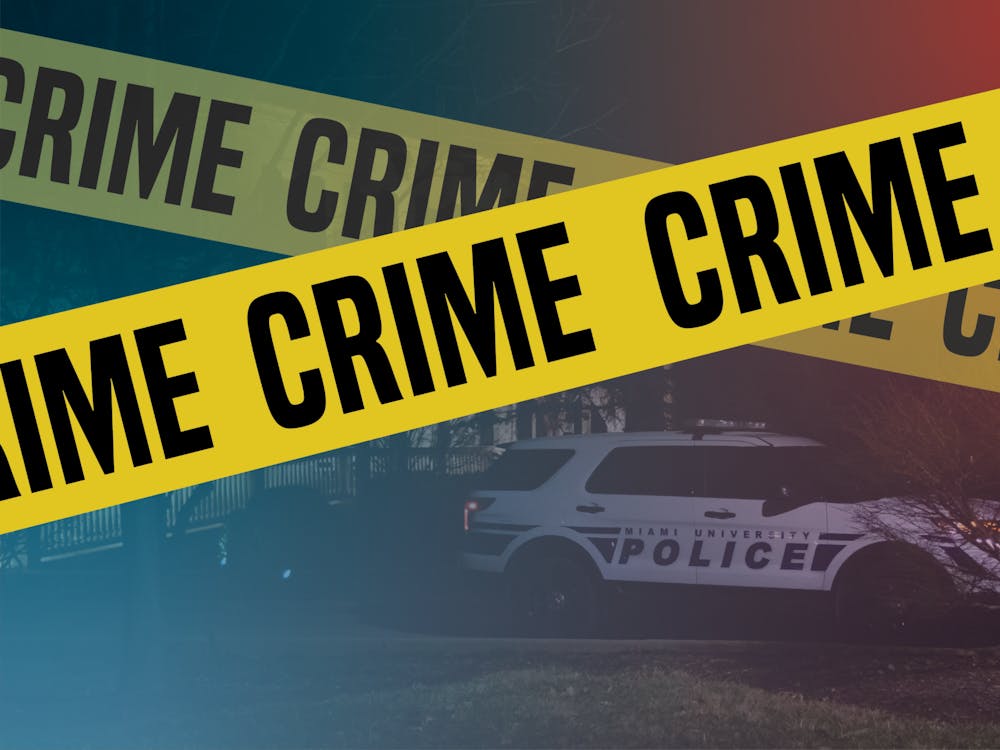As spring approaches with warmer weather and fewer COVID-19 restrictions, university officials and student organizations are reporting more students are engaging in extracurricular activities at Miami University.
Charlie Clark, a junior mechanical engineering major and president of the Outdoor Adventure Club, has witnessed this increase in new members first hand.
Last semester, Clark said the club typically saw 5-10 members per meeting, but he is now seeing 15-20 members per meeting.
“Speaking from my own experience, I was cooped up quarantining and stuff for a year and a half, so I think people are just excited to get out and do stuff again,” Clark said.
Kim Vance, director of Student Engagement Activities and Leadership at Miami, outlined three main reasons for the surge in student involvement.
She said while students returned to campus for the spring with the mask mandate still in place, the high vaccination rates among students and faculty made students feel more comfortable to join organizations.
“The knowledge of vaccination status and the effective communication from the COVID response team helps people feel more at ease,” Vance said.
She also said that because COVID-19 restrictions eased, it feels like a typical spring semester. Miami announced last week that masks would only have to be worn “in classrooms during instruction, laboratory or other research settings, and in healthcare settings.”

Because COVID-19 restrictions eased, it almost feels like a typical spring semester.
Lastly, she said having warmer weather motivates students to get involved.
“Just like the squirrels and deers and raccoons, we get a little bit more active shaking off the winter, and I think that happens in any year with or without COVID,” Vance said.
Whether it’s the high vaccination rates, fewer COVID-19 restrictions or warmer weather, students are certainly getting more involved. Vance said Miami saw the largest sorority recruitment since 2017, with close to 1,000 women accepting bids.
Enjoy what you're reading?
Signup for our newsletter
Similarly, fraternities also saw an increase in accepted bids. In 2021, 550 men accepted bids, but that number increased to 600 this year.
Vance believes the ease in COVID-19 restrictions played a significant role in the increase of students joining Greek life.
“Last year, the fraternities were not allowed to invite men into their houses during that week of recruitment where they do house tours and interviews,” Vance said. “But this year, they were able to do that because the restrictions weren’t in place.”
Like Clark, Megan Hayes, a senior theater and political science double major and co-president of Sketched Out Improv, has also seen an increase in new members.
“Last fall [in 2020], we had like 10 people audition because of COVID, and there wasn’t a traditional Mega Fair … so it ended up basically only being people that specifically sought out the improv team," Hayes said. "This year, with Mega Fair, we got so much more advertisement."
Sketched Out Improv only holds auditions in the fall, but Hayes said this past fall in 2021, they had 50 people try out for the team.
Hayes said one of the most surprising things she noticed with recruitment and new students auditioning was the number of upperclassmen wanting to get involved.
“We had a lot of sophomores, juniors, seniors auditioning for our team this year that just wanted to get involved after a year of not really being able to engage in anything on campus,” Hayes said.
Harrison Crone, a sophomore political science major, attended Miami remotely last year as a first-year. As a result, he only got involved with the Amicus Curiae Pre-Law Society because they moved all their meetings and events online.
“I wasn’t on campus,” Crone said. “I was living at home. I was also working a job, and as a freshman, you don’t really know people. I just really wasn’t motivated to join or do anything.”
This year, Crone is still involved with the Amicus Curiae Pre-Law Society but has also joined Sketched Out Improv and is a senator for Associated Student Government (ASG).
“There’s a real vacuum in leadership positions, so it’s a good opportunity for me,” Crone said. “When I ran for the Senate, I ran unopposed. For a while, I was the social chair for the pre-law society, which I also ran unopposed. Plus, I just wanted to get out there. I was tired of just sitting in my room.”
Although Crone thinks student engagement is increasing, he acknowledges that students coming out of the pandemic are still slow to join student organizations.
“[The Senate] noticed a huge decrease in student activity when it comes to extracurriculars,” Crone said. “In the Senate, we’re having trouble filling seats. In the pre-law society, we’re having trouble getting people to come. It’s definitely an issue we’re trying to fix.”
Despite a slight hesitation from students to get involved, Crone believes engagement is getting better and will hopefully continue to increase.
“I definitely think it’s improving,” Crone said. “With improv, we are seeing bigger crowds than at the start of the year, which is always great, and we see more people running for elections in the Senate, so I’m hopeful. I think it’s definitely a problem that’s starting to get solved, and I’m hopeful that it will be nonexistent by the next fall semester.”




